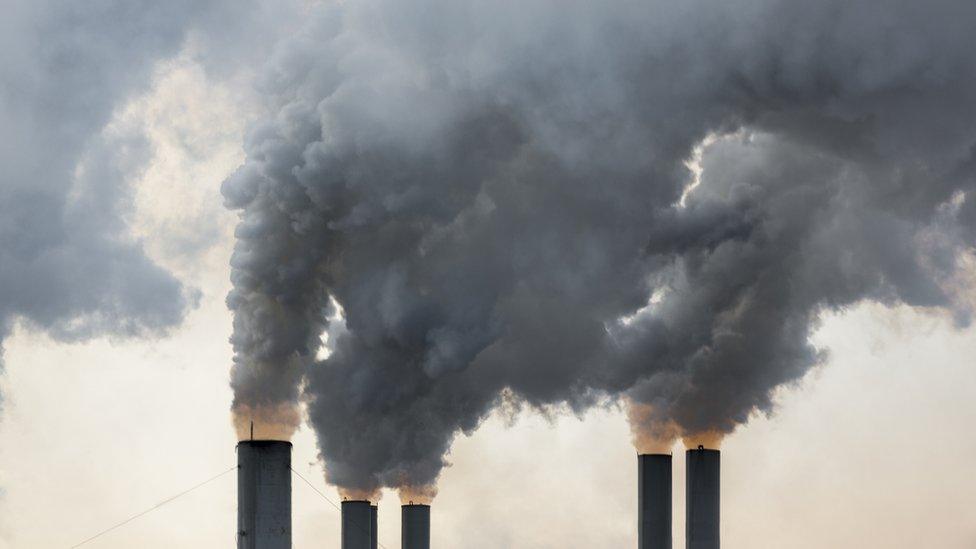Climate change: How the richest countries contribute to it
- Published
- comments

The richest 1% of people in the world produce more than double the amount of carbon emissions from the poorest half, according to a new report.
The findings, based on research carried out by the charity Oxfam and the Stockholm Environment Institute, found that the wealthiest people have a significantly greater impact on carbon pollution and climate change compared to the 3.1 billion of the world's poorest people.
The study looked at carbon emissions added to the atmosphere between 1990 and 2015. It found that the richest 10% of people were responsible for a massive 52% (just over half) of worldwide emissions during this period.
The richest 1% were responsible for 15% of emissions, while the poorest half of the world had collectively created just 7% of carbon pollution.
WATCH: How is climate change affecting young people living on the island of Fiji?
Although restrictions introduced as a result of the coronavirus have seen emissions fall, the difference between the levels produced by the richest and poorest in society is still huge.
"The over-consumption of a wealthy minority is fuelling the climate crisis yet it is poor communities and young people who are paying the price," said Tim Gore, Head of Climate Policy at Oxfam and author of the report.
The author of the study thinks a sales tax on private jets and super yachts should be introduced
He believes more needs to be done to protect the groups least responsible for the climate crisis, including the poor and vulnerable.
He also says more measures should be introduced by those in charge to cut emissions produced by the rich, including a sales tax on private jets and super yachts.
"Governments must curb the emissions of the wealthy through taxes and bans on luxury carbon such as SUVs and frequent flights. Revenues should be invested in public services and low carbon sectors to create jobs, and help end poverty," he said.
- Published14 September 2020
- Published25 September 2018
- Published20 January 2020
